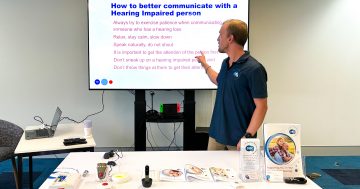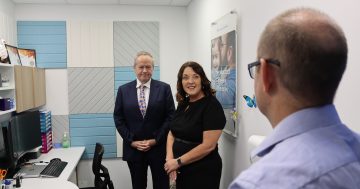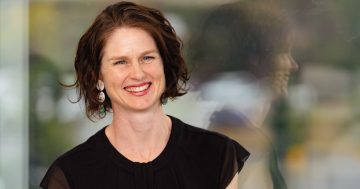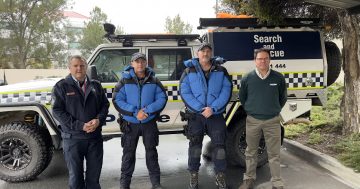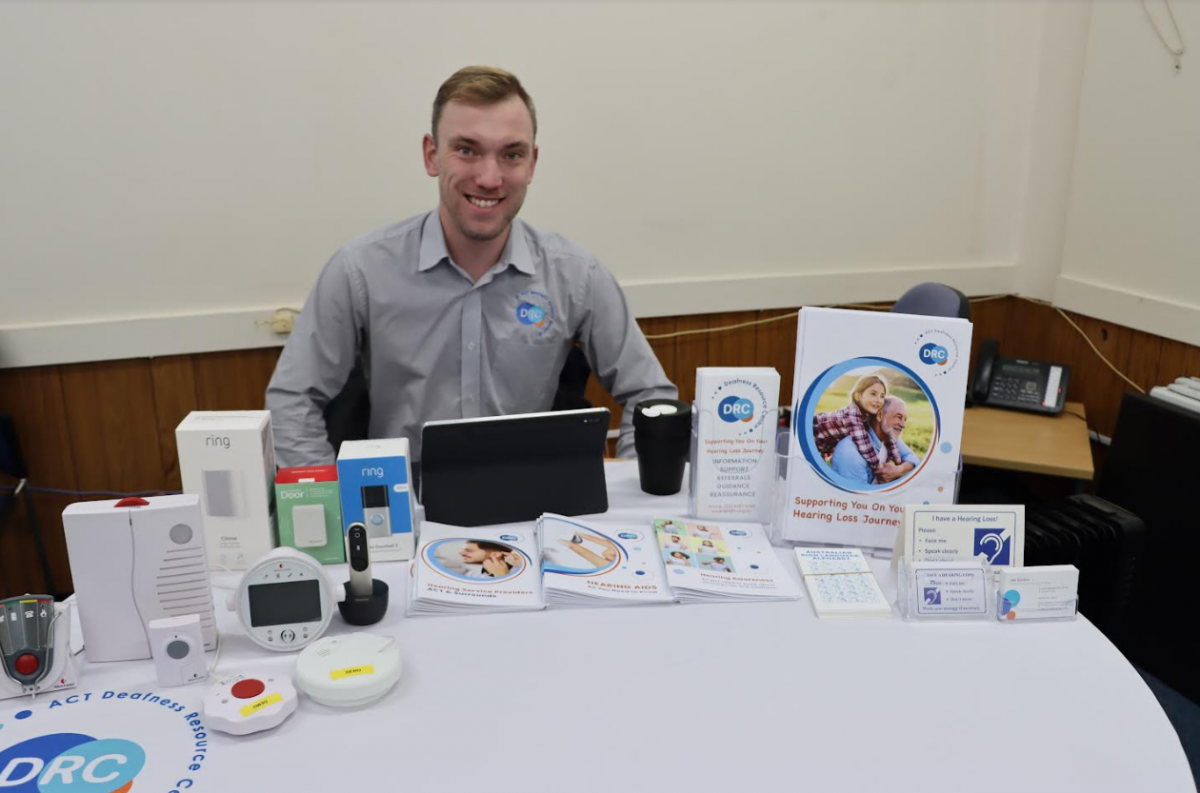
Hear to help: ACT Deafness Resource Centre communications and social media officer Jo Symons. Photo: Jo Symons.
Born deaf with moderate to severe hearing loss, Joe Symons never thought he would be working with people with similar problems.
“Talking with people in the same boat really helped me,” he said.
“When I was young, I went to The Shepherd Centre, an organisation that helps children with hearing loss with how to communicate, speak and form friendships and relationships. That’s how I built my communication skills.
“My aim now is to help make hearing loss more visible and advocating about it. I’ve had some great feedback so far about my organisation and I hope I can help other people like me feel confident and strong.”
The ACT Deafness Resource Centre communications and social media officer said there was a stigma around deafness and people often didn’t know what to do, where to go and how to get information.
He said most people who became deaf were over 65.
“Because we are not for profit, the ACT Deafness Resource Centre helps people for free and gives them information and resources for what we do and the assistance we can provide,” Mr Symons said.
“We’re all about giving different tips and tricks to help people communicate in different environments.
“I think we also offer some peace of mind, it can be a daunting experience to find out you’ve got hearing loss.
“By seeing other members in the community going through the same journey and chatting with them, we can help them feel more comfortable and relieved to know they’re not alone and there is support out there.”
He said the centre was more than about giving support; the ACT Deafness Resource Centre could also show and explain the modern technology available to manage the situation.
“There’s a lot of people with hearing problems who don’t voice it, that’s why we are here to help them.”
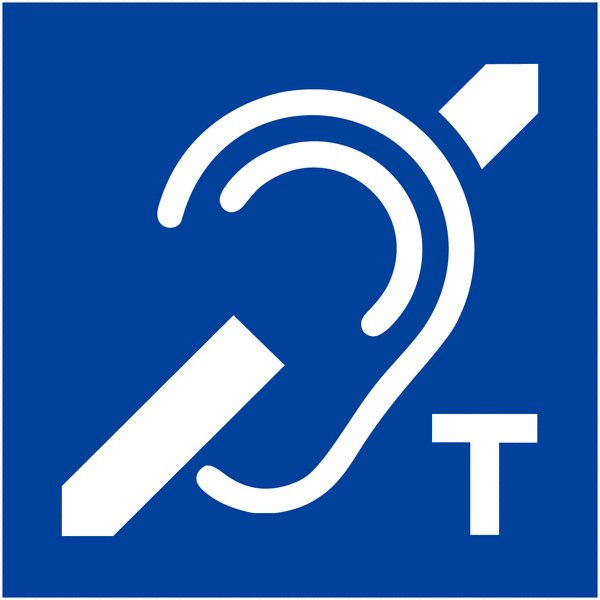
This sign means there is a hearing loop installed. Photo: Jo Symons.
“One of the other things I’ve noticed is that certain venues can be a bit too loud or can be a bit difficult for people with a hearing loss,” Mr Symons said.
One of the latest inventions – the hearing loop – helps those with a hearing aid.
“Many types of hearing aids have a telecoil system which means when the hearing loop is turned on in that venue, whatever sound is playing – whether it’s coming from a movie theatre, meeting room or church that uses microphones – the hearing loop will pick it up,” he said. “That person will then be able to hear those sounds through their hearing aid.
“If you suffer from hearing loss and you have a ‘T’ switch on your hearing aid, have a look out for the hearing loop signs.”
Mr Symons said a lot of venues with hearing loops often had them turned off.
“Our organisation looks at loops to see if they are working or not, and if they are accessible for those with a hearing loss.
“If you find a venue such as a church, movie theatre or museum, and you see a sign for hearing loops, you need to ask someone to turn them on.
“We’ve got to keep educating people and helping them.”
He said there were quite a few churches with hearing loops, as well as the Q Theatre and Canberra Theatre Centre that used the loops, microphones and other resources to cater for everybody.
“The AFL in Canberra has also introduced captions underneath the signs on the screens so people with hearing loss can enjoy the games too.
“We also give out cards that say ‘I have a hearing disability, please speak louder or more clearly’ to help deaf people.
“And during the pandemic, our organisation developed a resource people could download on their phones to show others they could remove their mask when speaking with someone with a hearing impairment.”
Mr Symons hoped more services would become accessible for the hearing impaired.
“We call it an invisible disability. Even with hearing aids, a lot of people don’t realise you have a hearing loss, unless they ask you to repeat yourself because they didn’t hear you.”
For more information visit The ACT Deafness Resource Centre













